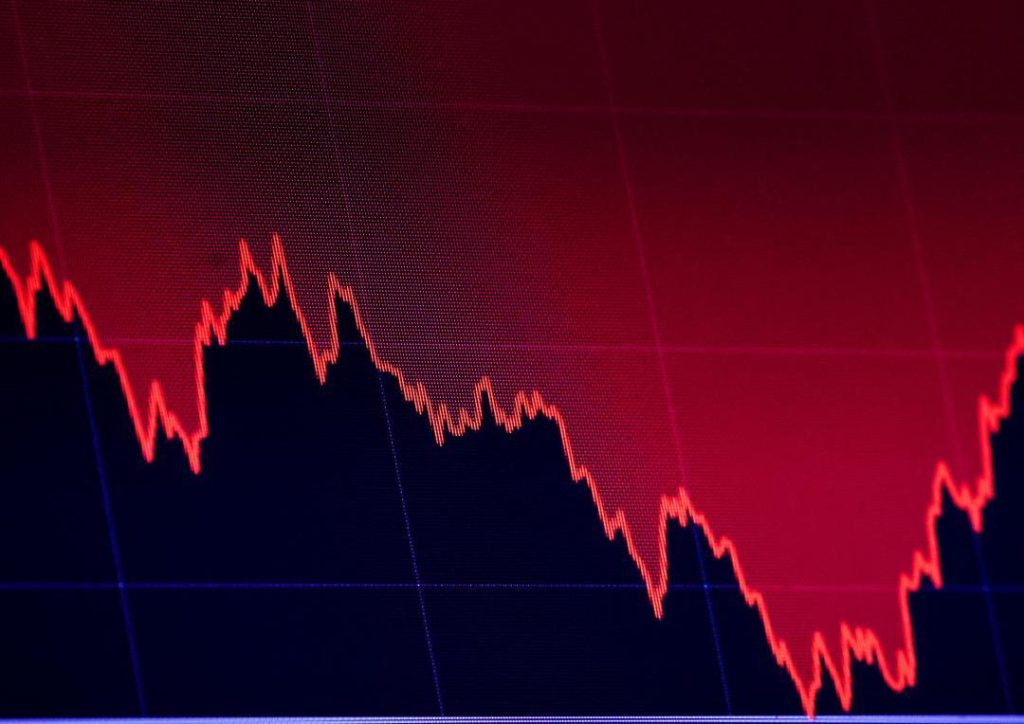
Bloodbath in US markets, S&P 500 and Nasdaq at over 6-month lows
The US stock market has been experiencing a tumultuous ride in recent months, and Monday was no exception. The S&P 500 and Nasdaq indexes both plummeted to their lowest levels in over six months, as investors grew increasingly anxious over the looming tariff announcement by US President Donald Trump.
At 09:44 am (US time), the S&P 500 was down a staggering 81.90 points, representing a 1.47% decline, to settle at 5,499.04. The Nasdaq, considered a bellwether for the tech sector, was not far behind, plummeting 409.48 points, or 2.36%, to 16,913.52. The massive selloff was fueled by widespread concerns that Trump’s upcoming tariff plans would have a disastrous impact on the US economy, potentially even pushing it into recession.
The news sent shockwaves through the financial community, with investors scrambling to adjust their portfolios in response to the sudden and unexpected downturn. The Dow Jones Industrial Average was also severely impacted, dropping over 300 points, or 1.1%, to 32,900.77.
The tariff announcement has been a source of growing concern for investors in recent weeks, as Trump has hinted at imposing duties on a wide range of imported goods, including steel, aluminum, and even luxury items. While some have argued that such measures are necessary to protect American industries, others have warned that the consequences could be far-reaching and devastating.
One of the primary concerns is that the tariffs will lead to a surge in prices for American consumers, as companies pass on the increased costs to their customers. This could have a particularly brutal impact on low- and middle-income households, which may struggle to absorb the added expense.
Furthermore, the tariffs could also have a chilling effect on international trade, as other countries retaliate by imposing their own duties on American exports. This could lead to a vicious cycle of tit-for-tat tariffs, ultimately harming businesses and individuals on both sides of the border.
The fear of a global trade war has already sent shockwaves through the markets, with investors growing increasingly risk-averse as the uncertainty mounts. This has led to a flight to safety, with yields on government bonds plummeting as investors seek out the relative safety of fixed-income assets.
In addition to the tariff concerns, investors are also grappling with the implications of a potential recession. The US economy has been growing at a steady pace in recent years, but there are growing signs that the expansion may be slowing down. The yield curve, which measures the difference in interest rates between short-term and long-term bonds, has inverted, a historically reliable indicator of a recession on the horizon.
The inversion of the yield curve is a particularly ominous sign, as it suggests that investors are increasingly skeptical about the prospects for future economic growth. This could lead to a prolonged period of economic stagnation, with far-reaching consequences for businesses, individuals, and the overall economy.
In the face of this uncertainty, investors are likely to remain cautious in the coming weeks, as they seek to navigate the treacherous waters of the global economy. The tariff announcement is just the latest in a long line of challenges facing the US market, including the ongoing trade tensions with China, the impact of the COVID-19 pandemic, and the uncertainty surrounding the 2024 presidential election.
Despite the challenges, there are still opportunities to be found in the market, particularly for investors who are willing to take a long-term view. The S&P 500 and Nasdaq have both experienced significant pullbacks in recent months, providing a chance for investors to pick up high-quality stocks at discounted prices.
For those looking to navigate the complexities of the US market, it is essential to stay informed and educated about the latest developments. By following reputable news sources, such as Reuters, and consulting with experienced financial advisors, investors can make informed decisions and position themselves for success in the face of uncertainty.
Source:
https://www.reuters.com/markets/us/futures-tumble-tariffs-fuel-recession-worries-2025-03-31/






